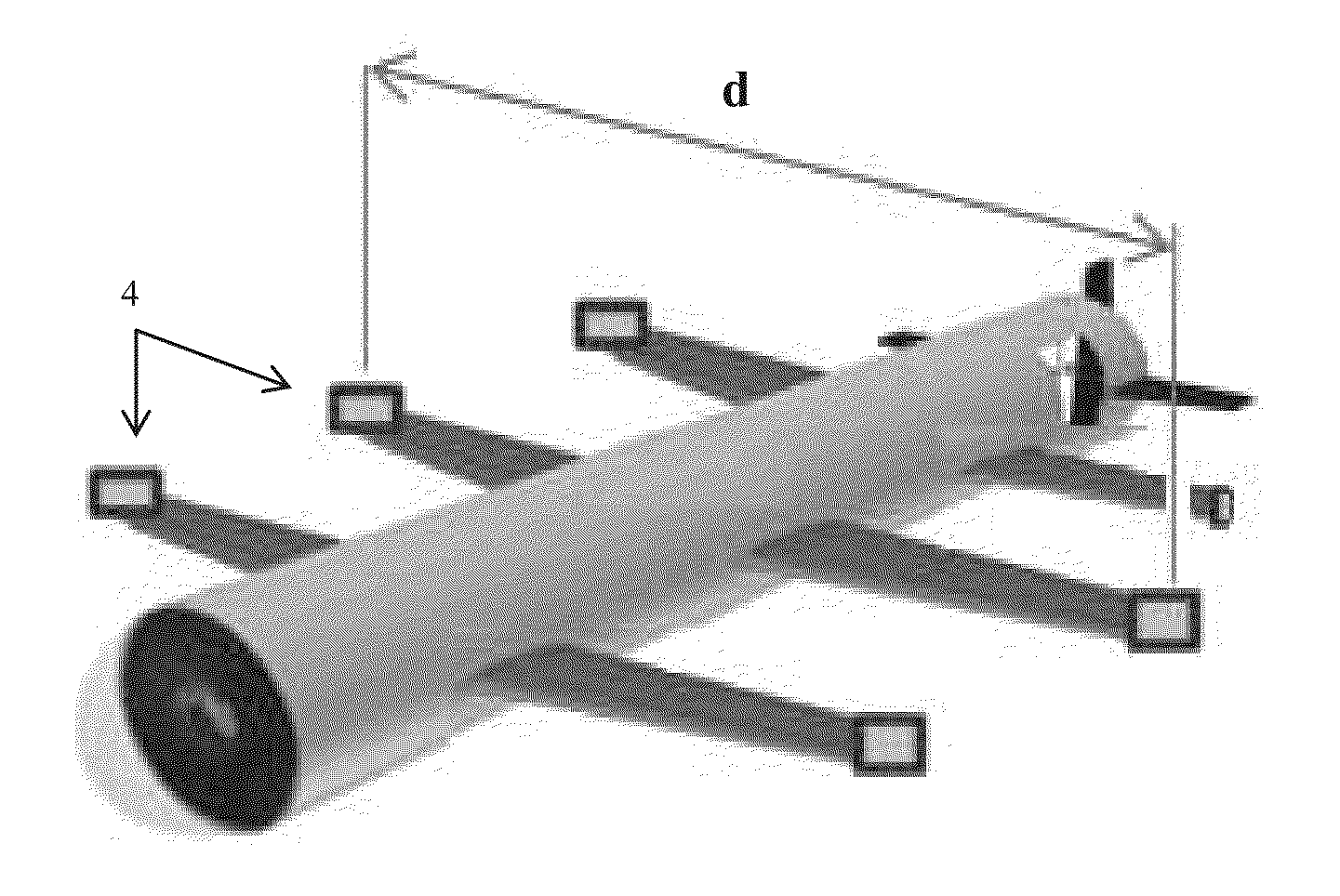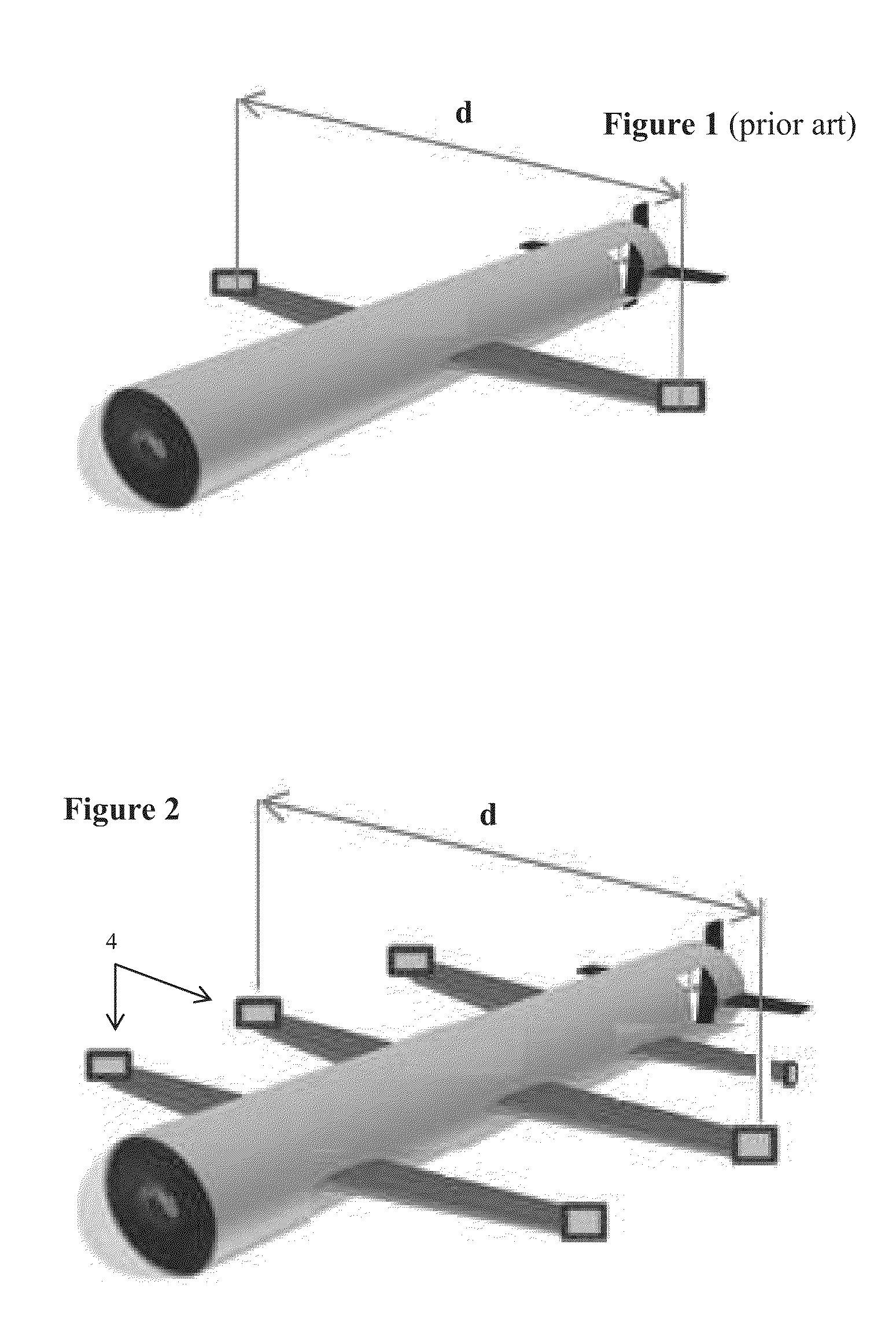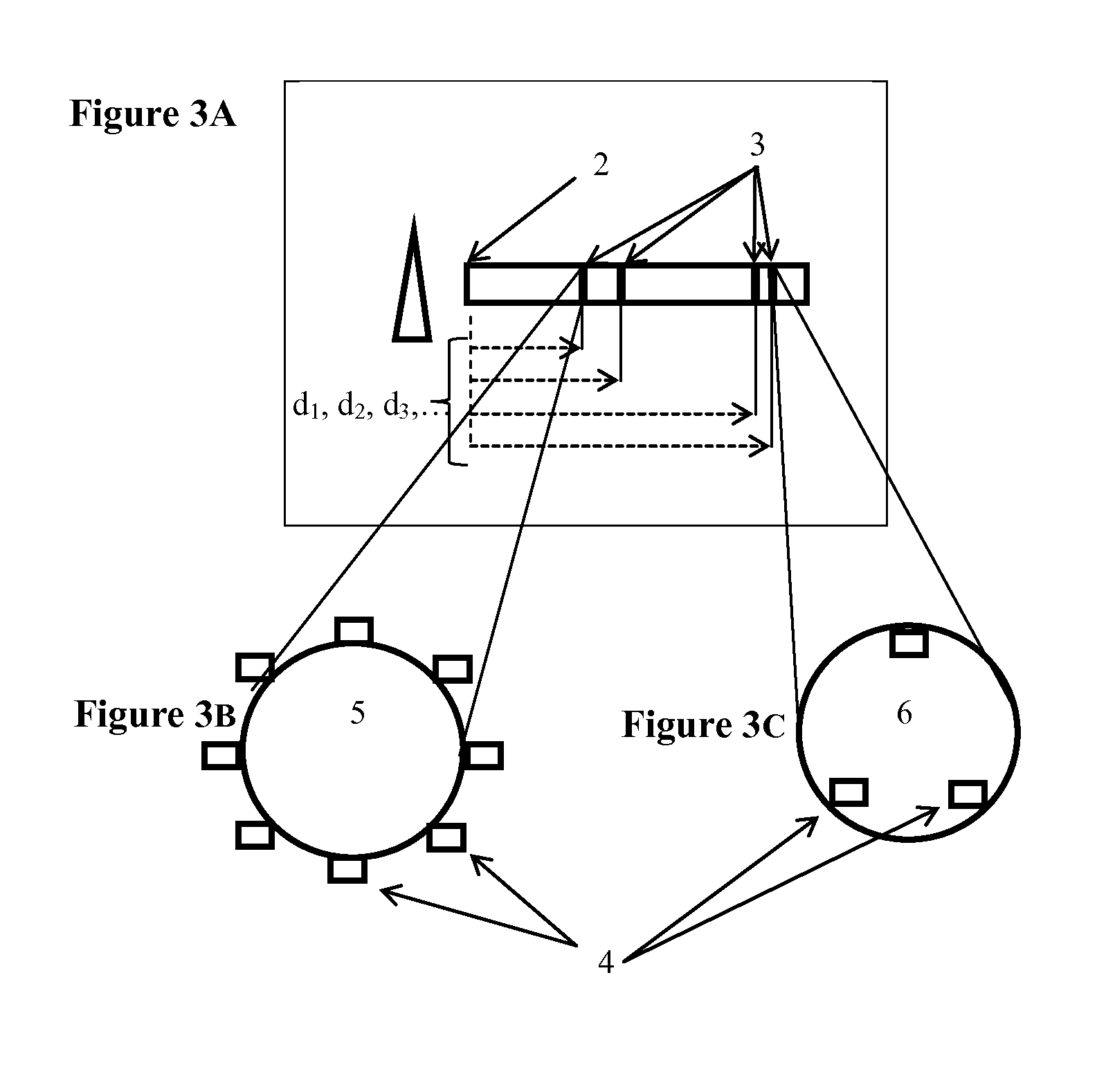Autonomous pipeline inspection using magnetic tomography
- Summary
- Abstract
- Description
- Claims
- Application Information
AI Technical Summary
Benefits of technology
Problems solved by technology
Method used
Image
Examples
Embodiment Construction
[0044]The term “remote,” as used herein is defined as being used from a substantial distance from a structure under testing. The term is used to signify that a sensor, as defined herein, is not necessarily located in close proximity to the structure being tested. The preferred embodiment of the invention performs best when the distance between structure and sensors ranges from 1-50 meters, however, the term remote is intended to mean up to 15 times the diameter of the structure being surveyed. This makes the invention especially effective for testing structures located deep underground and underwater.
[0045]The term “threshold distance,” as used herein, is defined as an amount equal to 15 (fifteen) times the diameter of a structure being surveyed, or scanned. The term is used to describe the range of the device and method claimed herein (i.e. the maximum distance between a given structure and a device during operation).
[0046]The term “sensor,” or “sensors,” as used herein, is defined...
PUM
 Login to View More
Login to View More Abstract
Description
Claims
Application Information
 Login to View More
Login to View More - R&D
- Intellectual Property
- Life Sciences
- Materials
- Tech Scout
- Unparalleled Data Quality
- Higher Quality Content
- 60% Fewer Hallucinations
Browse by: Latest US Patents, China's latest patents, Technical Efficacy Thesaurus, Application Domain, Technology Topic, Popular Technical Reports.
© 2025 PatSnap. All rights reserved.Legal|Privacy policy|Modern Slavery Act Transparency Statement|Sitemap|About US| Contact US: help@patsnap.com



